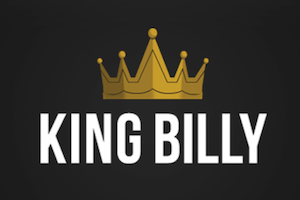The law as it related to online gambling in Canada is a little complex. Residents of the country have the choice of playing at the limited number of government run websites in each province, or a much wider selection of offshore sites usually run by the big European operators and licensed out of territories such as Malta and Gibraltar.
Both options are entirely legal and safe.
In 2021 some very important changes are being enacted that will transform the way in which this popular pastime is regulated, making single event sports betting legal for the first time. We will cover this and the likely implication for other forms of gambling further down this article.
Here we guide you through the many options available for slots players who want to enjoy gambling online.
Online Gambling and the Criminal Code of Canada
The Criminal Code of Canada is where all the laws relating to online and offline gambling are published. The Code itself is a set of laws first enacted in 1892 that codifies criminal offences and procedures in Canada.
The first version of the code made all forms of gambling in Canada illegal. However, since that time exceptions have been made to those rules to allow the Provinces to run their own gambling markets in a limited form.
The first big change came in 1969 when the Provincial governments were each given the power to autonomously regulate the gambling market in their own territory. At the same time, they were given the right to run lotteries as a means to raise funds. This was the catalyst for the growth of the offline casino market in Canada as each Province licensed several venues to operate casino table games as well as video slots on their premises.
In the 2000s the provincial governments were also given the right to run games of chance online, but only within sites run operated by the governments. Before now there has been no provision made in law for private firms based in Canada to operate online casinos or sportsbooks.
This situation leaves those in Canada seeking online casino and slot games with two choices – either bet with the provincial government sites like PlayNow.com run by the British Colombia Lottery Corporation or OLG.com run by the Ontario Lottery and Gaming Corporation, or choose one of the hundreds of offshore sites licensed by the Malta Gaming Authority, the Gibraltar Gambling Commission or the Kahnawake Gaming Commission.
Offshore Casinos Taking Bets in Canada
The online casinos that we promote here at AllSlotSites.com Canada are all offshore ones and they are all fully licensed by reputable jurisdictions. Offshore means that the business, games and website servers are all located outside of Canada. They are all extremely popular amongst Canadian players because they have a wider game selection that the provincial sites.
They also usually offer significantly better bonus packages than their onshore competitors because the marketing teams running the sites have cut their teeth in the extremely competitive gaming markets in Europe where offering high value welcome offers is critical to attracting and retaining your customers. This is why we recommend choosing your next gambling destination from the lists on our pages.
They are all safe, secure and trustworthy and offer an excellent product portfolio.
These are links to the gaming jurisdictions in which Canada’s offshore casinos are licensed:
- Malta Gaming Authority
- Gibraltar Gambling Commission
- Kahnawake Gaming Commission
On their websites you will find information about all the operators to whom they have issued a license, as well as their policies on responsible gambling and how to raise a compliant against one of their operators.
What Does the Future Hold For Online Gambling Law in Canada
The current set-up makes Canada something of a grey market for casino operators – whilst sites like 888 and Jackpot City can take bets from Canadian players they are not licensed within Canada and do not pay tax on revenues earned there.
Canada is something of an outlier in this regard. Where most of its peers have embraced the online gambling revolution of the last two decades, this country has remained ambivalent, maintaining a state-monopoly whilst allowing offshore operators to continue taking business and profit out of the country at the same times.
But it looks like all this is about to change.
In summer 2021, Private Members Bill C-218 was passed through the Senate and given Royal Assent, making Single Event Sports Betting legal. Previously, the only kind of betting allowed on sports was Parlay or Accumulator betting. Under the new laws Canadians will be able to bet on the outcome of individual matches, tournaments and in-play markets across hundreds of sports. They will now have access to the same kind of sports betting experience as that enjoyed by gamblers in the new US markets and across regulated European markets like the UK.
But why is this significant for online casinos too?
The move to legalise single event sports betting is part of a wider softening of attitudes toward regulation in Canada. Watching their neighbours in the States successfully open up sports betting online, along with an urgent need to raise funds through taxes in a post-pandemic world has helped make MPs more open to the idea of legalising online gambling.
So, following the changes to the law around sports betting, which many believe will see sports markets made available to customers of the provincial government sites like PlayNow.com by the end of 2021, it is expected that private betting firms will be invited to set up in Canada too, and start taking bets online and paying taxes or revenue share to the government for the privilege.
Indeed, in 2021 the government of Ontario has published a paper outlining how it sees a regulated sports and casino market working. The newly established Alcohol and Gaming Commission will be the regulator and is working to get things started.
With Ontario setting the pace, other provinces, including British Colombia, are likely to follow quickly behind over the next decade.
In conclusion, Canada is in a state of transition right now, with both onshore and offshore gambling sites available to residents. In the next 2 to 3 years we expect to see changes as more private companies set up under new regulation, though offshore casinos will likely still compete for the foreseeable future.
What we can say for sure is that there will certainly be no shortage of choice for Canadian slots players looking for secure, fair and responsible gambling in a safe environment.




